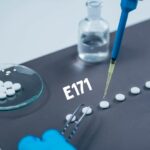
Nanopesticides: Questions about their potential adverse effects
In Science for Environment Policy n°558, the European Commission relays the analysis and recommendations of a team of researchers on the subject of “nanopesticides”. If there are many benefits expected from the use of nanopesticides, notably a lower quantity of active substance used, they can only keep their promises if their risks are well evaluated and minimized. The researchers point out the questions raised by the nanopesticides life cycle, their fate and the toxic effects on the environment . Their recommendations include:
- the development of a precise definition of the term “nanopesticide”
- adapting current testing guidelines to account for the properties and behavior of nanoscale materials, and standardizing testing guidelines for nanopesticides
- environmental assessments of nanopesticides over long periods of time and with appropriate organisms
- a better physical understanding of the risks posed by nanopesticides and their degradation.
Note: the authors point out that no nanomaterial-based pesticides are currently listed in the EU Pesticides Database, which lists active substances approved for use in Europe. Agriculture is however the sector of use that comes first in the French r-nano register (in number of declarations; for the volume, the information does not exist).
Our information sheets to go further
Other news on the topic
Upcoming Nano Agenda

- International conference on metallic nano-objects for experts working in the interdisciplinary field of metallic nanoparticles, with a particular emphasis on nanoparticle synthesis and characterization, plasmonics, optics and photonics, catalysis, biomedicine, electronics, and nanoparticle recycling
- Organizers / Partners: CNRS, Bordeaux University, Bordeaux INP, ICMCB, CRPP, CBMN, ISM
- Website: https://mno2026.sciencesconf.org
- Toxicokinetics: the fate of chemicals in the body” training course:
- the different routes of entry for toxic products
- the importance of toxicokinetics in preventing substance toxicity,
- xenobiotic absorption, distribution, metabolism and elimination
- nanoparticle toxicity
- Organizer: Association Toxicologie Chimie (ATC)
- Date: March 26, 2026
- Speaker: Nicole Proust (Research Engineer, CNRS Honorary Research Director, Palaiseau)
- Website: www.atctoxicologie.fr/…

- E-learning program: a 2-hour awareness-raising session aimed at personnel potentially exposed to nanomaterials at the workplace, heads of laboratories or facilities where nanomaterials are handled, safety coordinators or engineers.
- Organizers: INSTN Grenoble (CEA)
- On the program:
- 1 – Introduction, definition and characteristics of nanomaterials
- 2 – Toxicity of nanomaterials: the state of knowledge
- 3 – Metrology and characterization of nanomaterials
- 4 – Prevention and protection against nanomaterials in the workplace
- 5 – Quiz: assessment of learning outcomes
- The 2-hour course can be viewed for one month from the date of registration.
- Website: https://instn.cea.fr/…risques-lies-aux-nanomateriaux…



